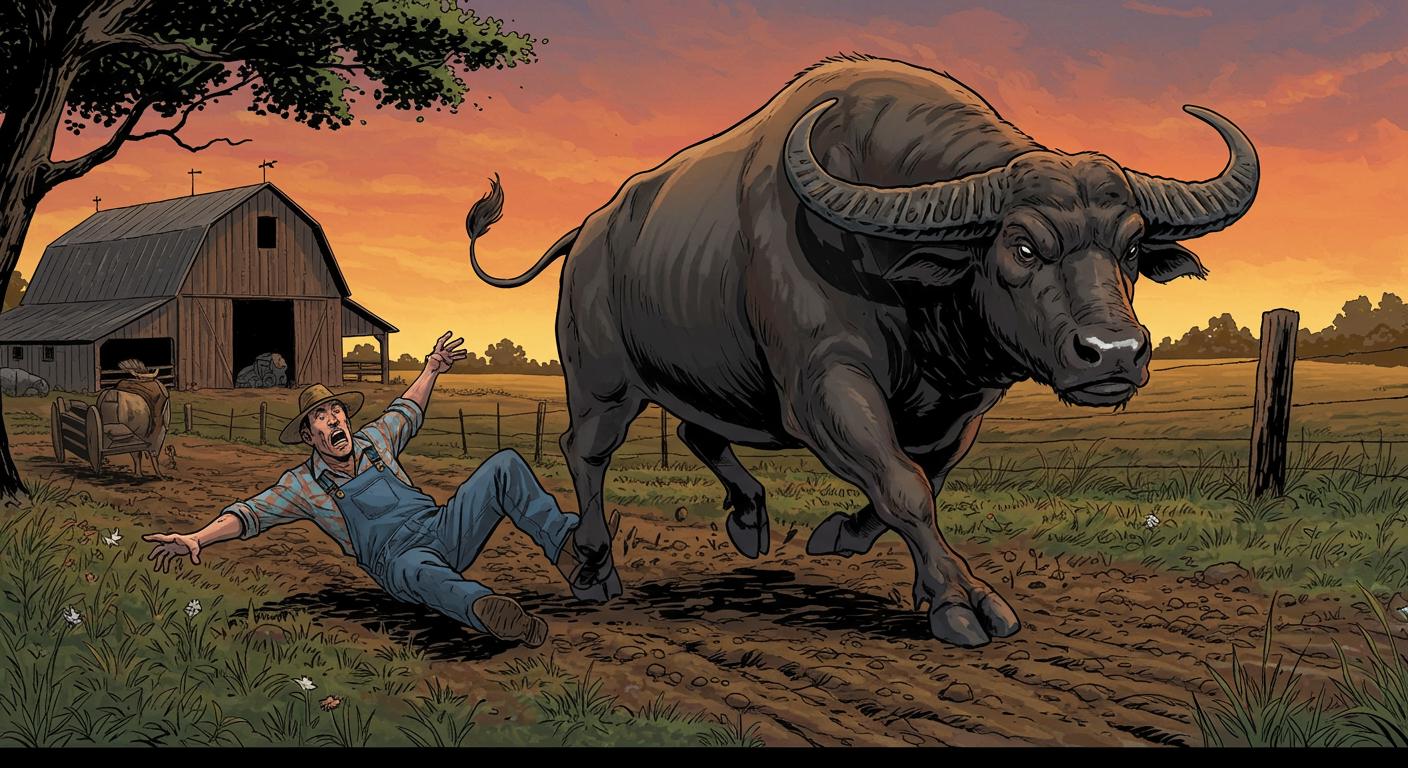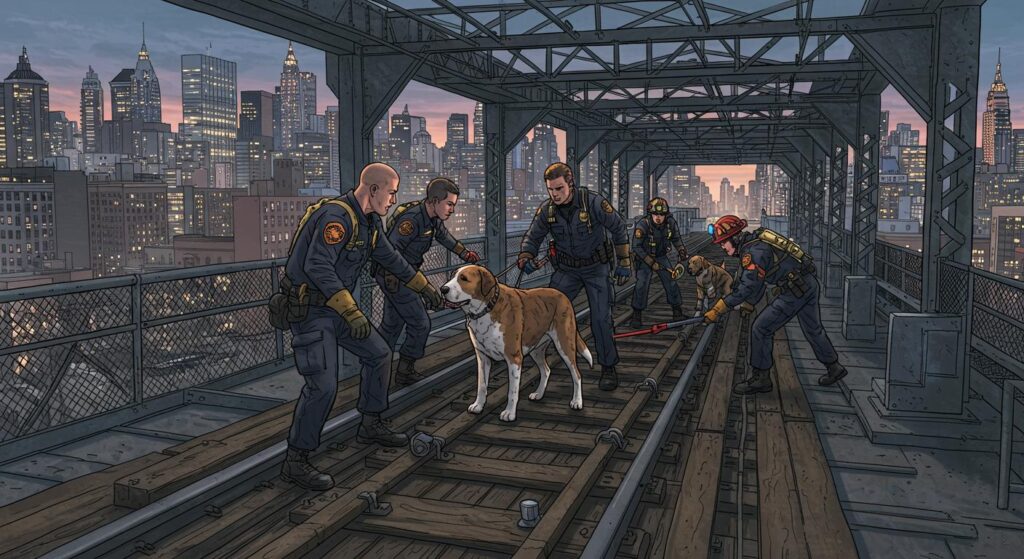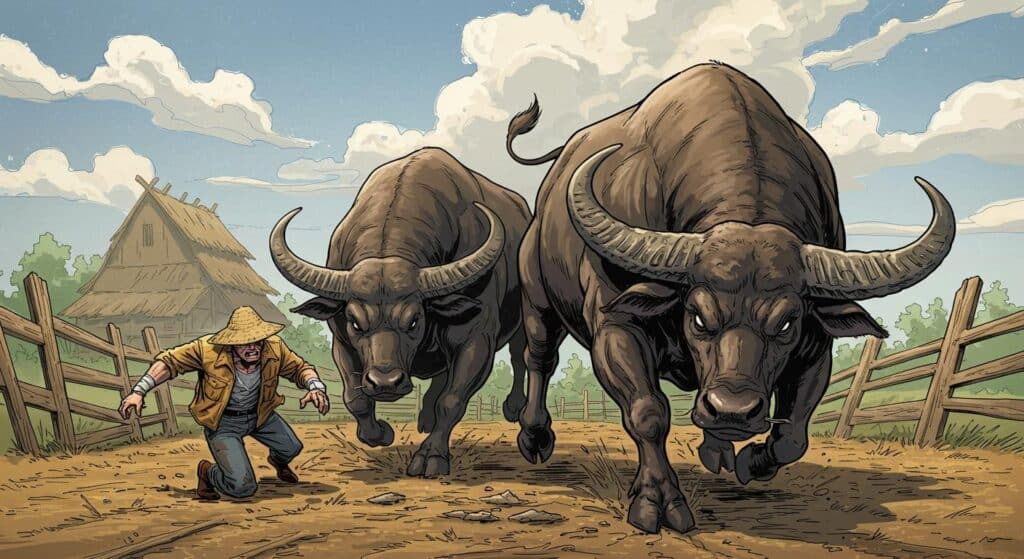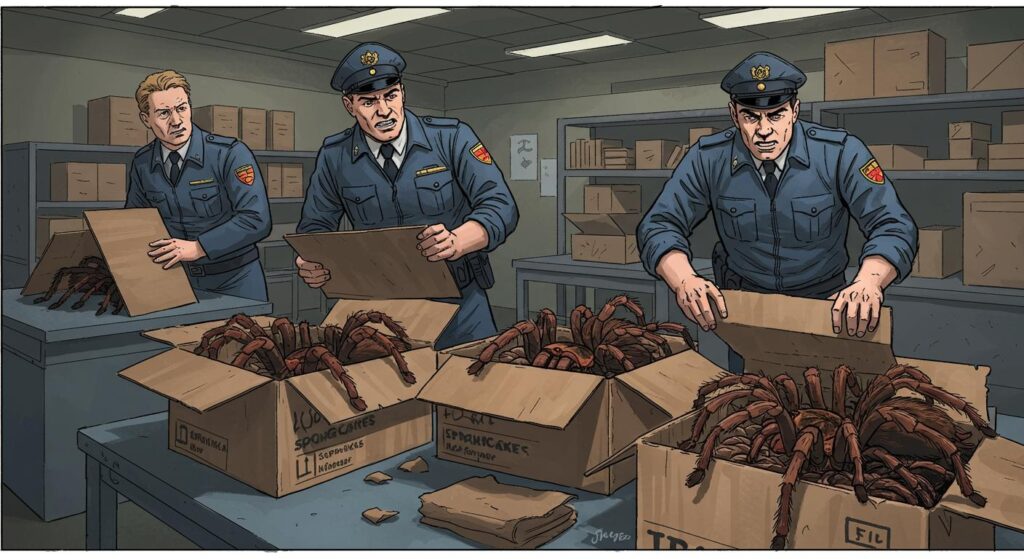The world is no stranger to stories that blend a dash of the tragic with a heavy pour of the bizarre. Sometimes, though, the cocktail is almost too strong. Last week in Jones, Oklahoma, a seasoned farmer’s routine Thursday trip to a livestock auction ended with a purchase that no one could have predicted would turn so swiftly and fatally unconventional—two water buffalo, who became, within mere hours of arrival, his killers.
The Fine Print on Water Buffalo Ownership
As News 9 reports, 45-year-old Bradley McMichael brought two water buffalo home on Thursday, July 10. By Friday night, first responders found themselves unable to reach McMichael after the animals turned aggressive—he had sustained “multiple deep lacerations” and was pronounced dead at the scene. Police determined both animals were responsible. For the safety of crews, both water buffalo were dispatched on site following escalating agitation.
So far, so rural-gone-wrong. Yet water buffalo—not your average Oklahoma barnmate—don’t often feature in local emergency incident logs. Suggest.com, summarizing the police Facebook statement, describes officers arriving to find the animals so “hostile” that entry to the scene was impossible, with one buffalo “immediately dispatched” for access, and the second growing “angrier” as the investigation continued. Both animals had to be put down, per the Jones Police Department.
Experience, Expectations… and the Unpredictable
On the spectrum of livestock management mishaps, water buffaloes are, to put it mildly, not your standard rookie hazard. McMichael was not a newcomer to farming. According to his fiancée Jennifer Green, who spoke with NBC News as cited by Suggest.com, he was “very experienced” and not prone to carelessness. “He wouldn’t have been casual,” Green insisted, noting that routine animal care—such as attending to stock tanks, which were reportedly not full of water yet—was underway when the attack occurred. Green remarked, “We don’t know how he got in that situation…we’re not sure if he was dumping them out to fill them with fresh water before he left. But that’s when it happened.”
CBS News, referencing statements from family and McMichael’s farm’s Facebook page, further details that purchasing livestock was a genuine passion for him, and that he’d been “in good spirits” after the auction. The farm called his death a “tragic accident.” This is echoed by family who, while shaken, do not suggest any foolhardiness or unpreparedness on McMichael’s part.
Of Auctions, Accidents, and Unanswered Questions
Water buffalo, with their helpful, almost cartoonish reputation in Southeast Asian rice paddies, are massive, strong-willed animals. Their appearance at a rural Oklahoma livestock sale is its own odd footnote. The reporting does not address whether the auction house provided handling guidance, animal histories, or specific warnings about temperament—details that naturally linger in the mind. Were information sheets handed out? Did anyone check if the newcomers were acclimated to humans, or just hoping “livestock is livestock” was universally true?
To be clear, the articles do not indicate whether any such advisories or histories were part of the transaction; these are the sorts of practical details left unanswered by the official reports. Sometimes, as any archivist can tell you, it’s not only what’s present in the record but also what’s conspicuously absent that reveals as much as it hides.
It’s also notable how the words “tragic accident” recur throughout. As CBS News notes, McMichael’s family and farm described it as such. The use of these phrases frames both the everydayness and the unsettling oddness of a farmer felled by his own livestock, less than a day after purchase.
Summary: The Unexpected Costs
If buyer’s remorse is an inevitable hazard of auctions, then the fate of Bradley McMichael might be the most literal case yet. Did anyone foresee a day-old purchase ending with multiple emergency vehicles and an on-site investigation by the Chief Medical Examiner? It seems not. As documented by all the outlets covering this event, rural life rarely keeps to expectations—especially with animals whose bulk and temperament could overshadow even the best-laid plans.
Here’s where the story lingers: the dream of a farm, a Thursday night auction, and—by every account—a practiced hand. All cut short in the sort of incident that carries questions few would think to ask. Do we, perhaps, underestimate just how many unknowns collect in the corners of country living? Has anyone truly written the manual for surprise water buffalo ownership in the American heartland?
For now, it’s an incident that oscillates between empathy and bewilderment—a genuine reminder that the oddest stories are so often the truest. Is there such a thing as “too much caution” when tackling the unfamiliar, or do some lessons only emerge from the strangest twists of fate? As always, the file remains open.







